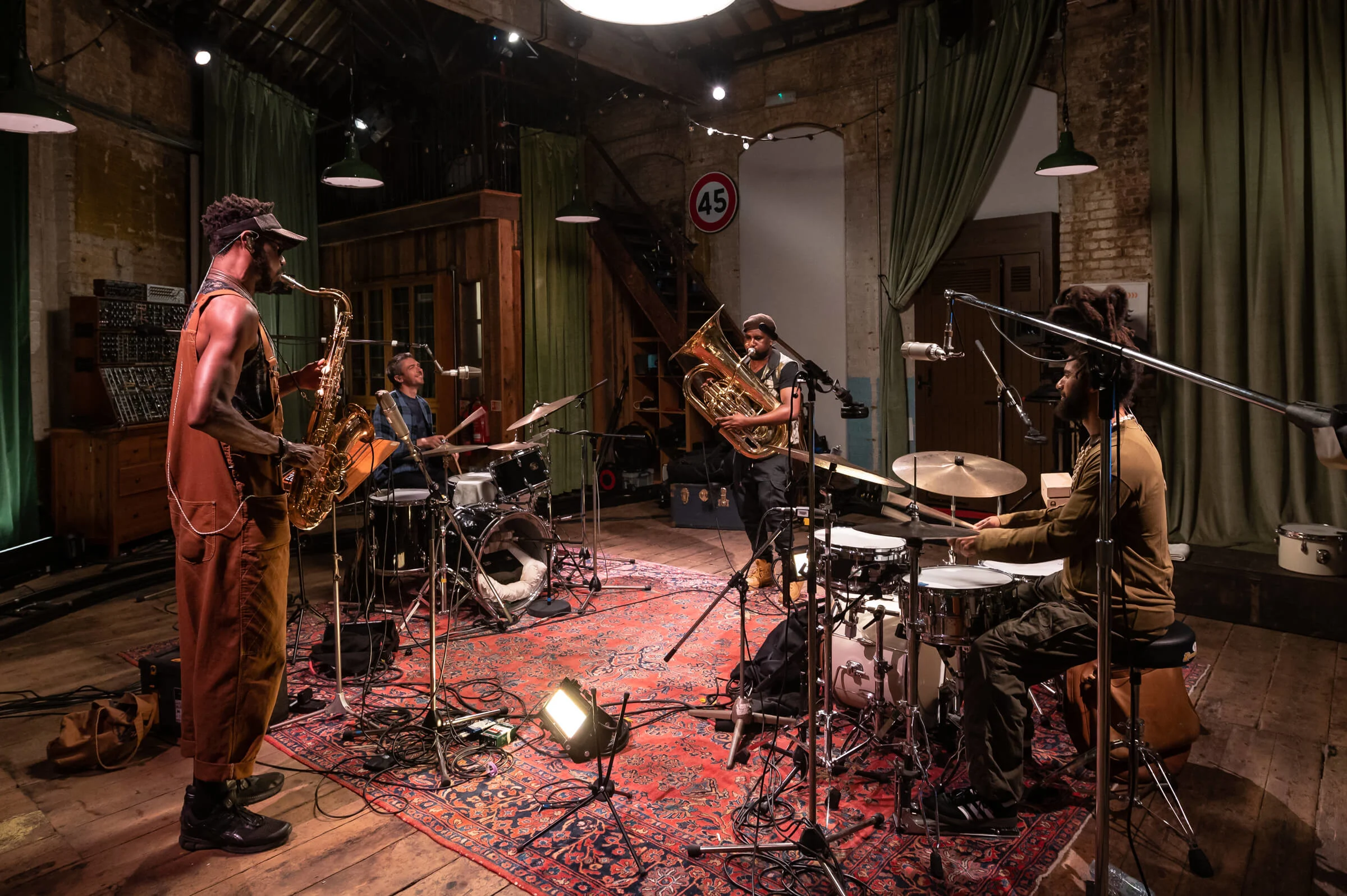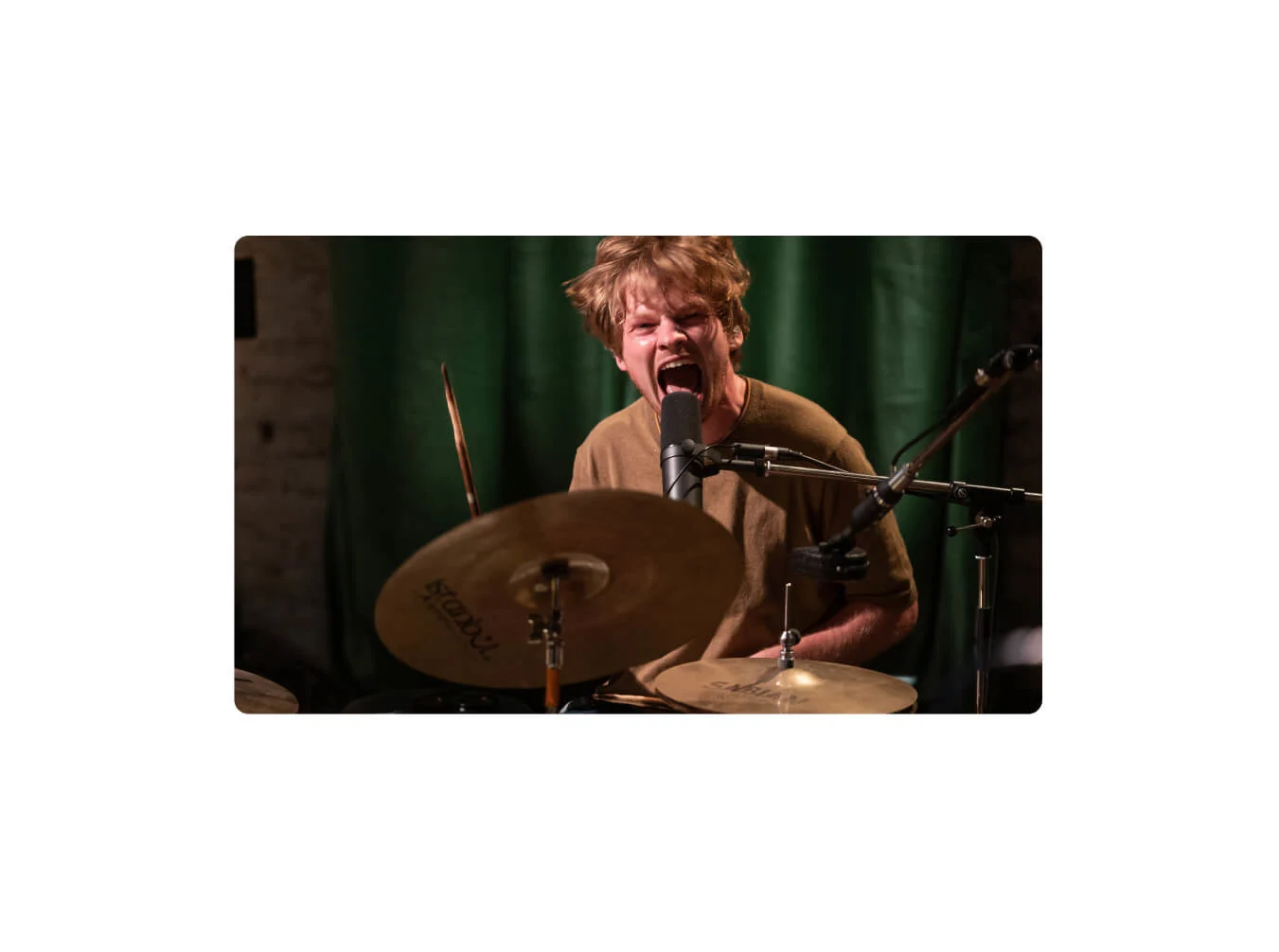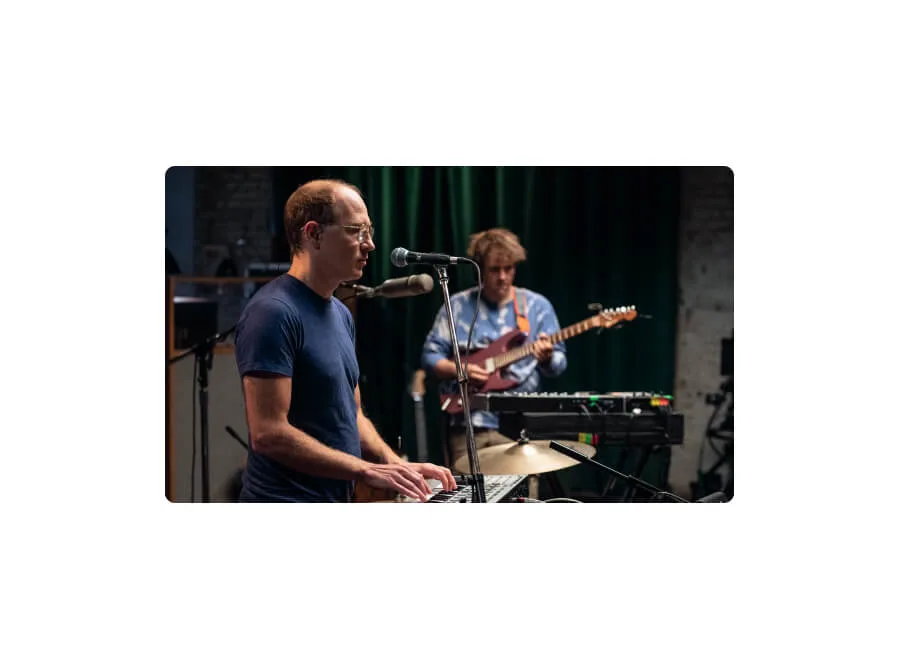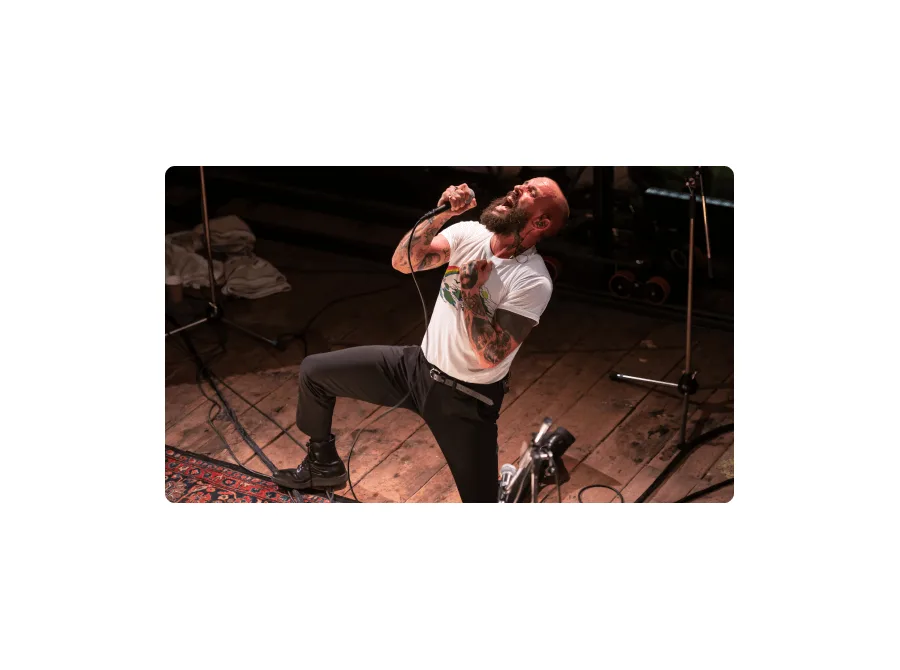
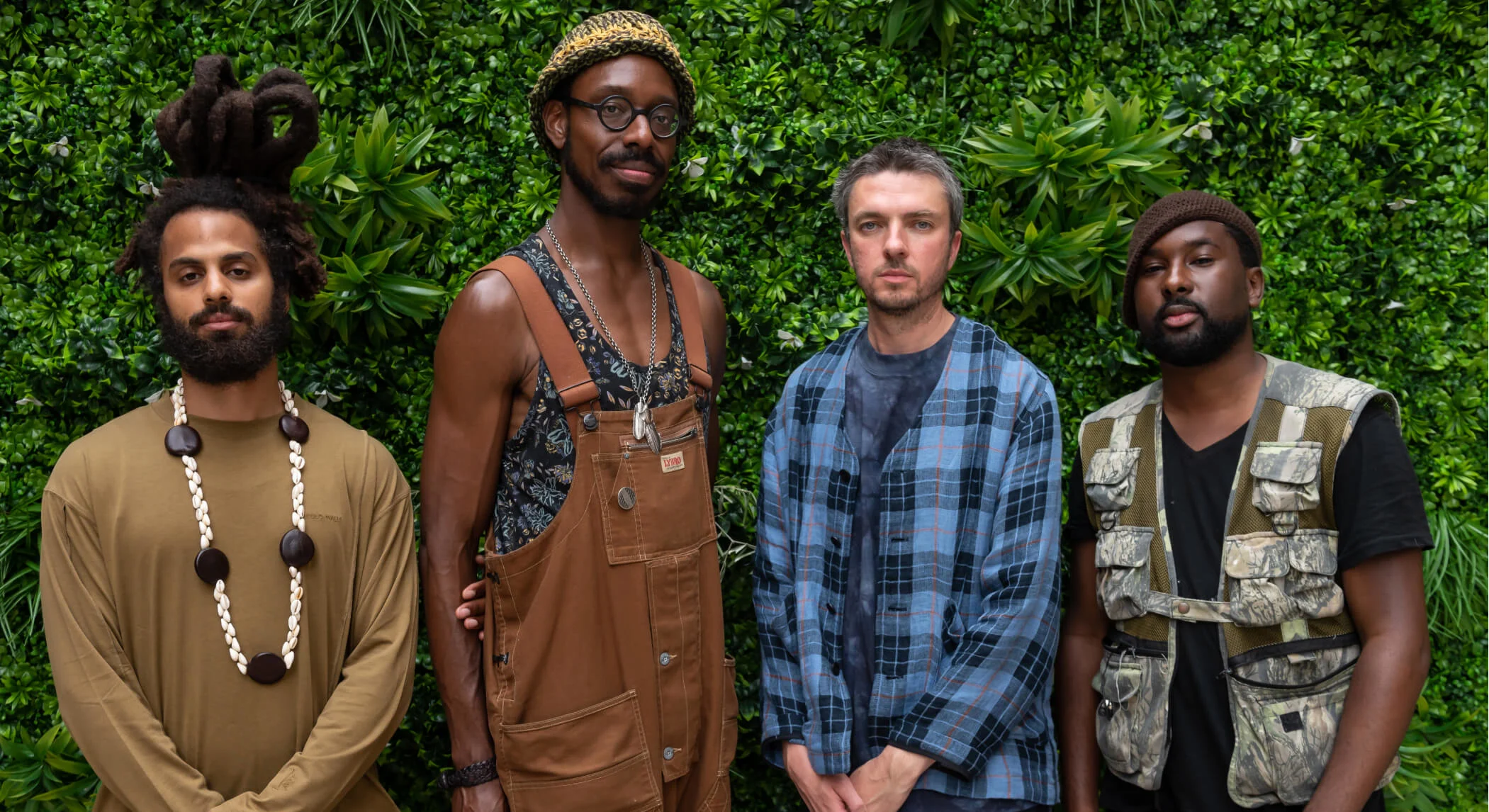

WeTransfer has partnered with Nigel Godrich's iconic music series From The Basement to bring you six new performances from some of the world's most extraordinary artists and bands. Here you can see a show by British jazz group Sons of Kemet. Writer Lucy Bourton spoke to Godrich and saxophonist Shabaka Hutchings about fusing the intimacy of a studio session with the spectacle of a live show.
For Nigel Godrich, the act of recording an artist’s performance is an emotional one. Of course, at times, the work is practical—listening out for mistakes, interruptions or technical complications. But what makes Godrich such a revered studio presence is an attention to detail that’s almost sentimental.
“What you’re waiting for is for a thing you can’t describe to appear,” he says. “That’s the real magic of making music, and it’s why it’s different from other art forms. It’s not like painting a picture or making a movie. It’s a thing happening in a room, a ball of energy that suddenly appears above these people. I am immersing myself within that, so I can see it happen.”

From The Basement, Godrich’s live performance series, documents these indescribable moments of creativity. In certain episodes this involves orchestrating amplified sounds of rising guitars or impassioned lyrical performances, but in others, like this one featuring British jazz group Sons Of Kemet, the performance is more natural, organic almost. With Shabaka Hutchings playing saxophone, Theon Cross on tuba, and the double drum power of Tom Skinner and Edward Wakili-Hick, Sons Of Kemet feature no gadgetry or even electricity. Yet, in “just hitting things and blowing through things,” Godrich jokes, the quartet’s performance is electric all the same.
Originally formed in 2011, this line-up of Sons Of Kemet have played together over the group’s last two albums, won numerous awards and toured globally—so it’s fair to say they know each other very well. However, this particular performance was recorded as England eased out of another lockdown in 2021—marking one of the first times they played together post-pandemic.

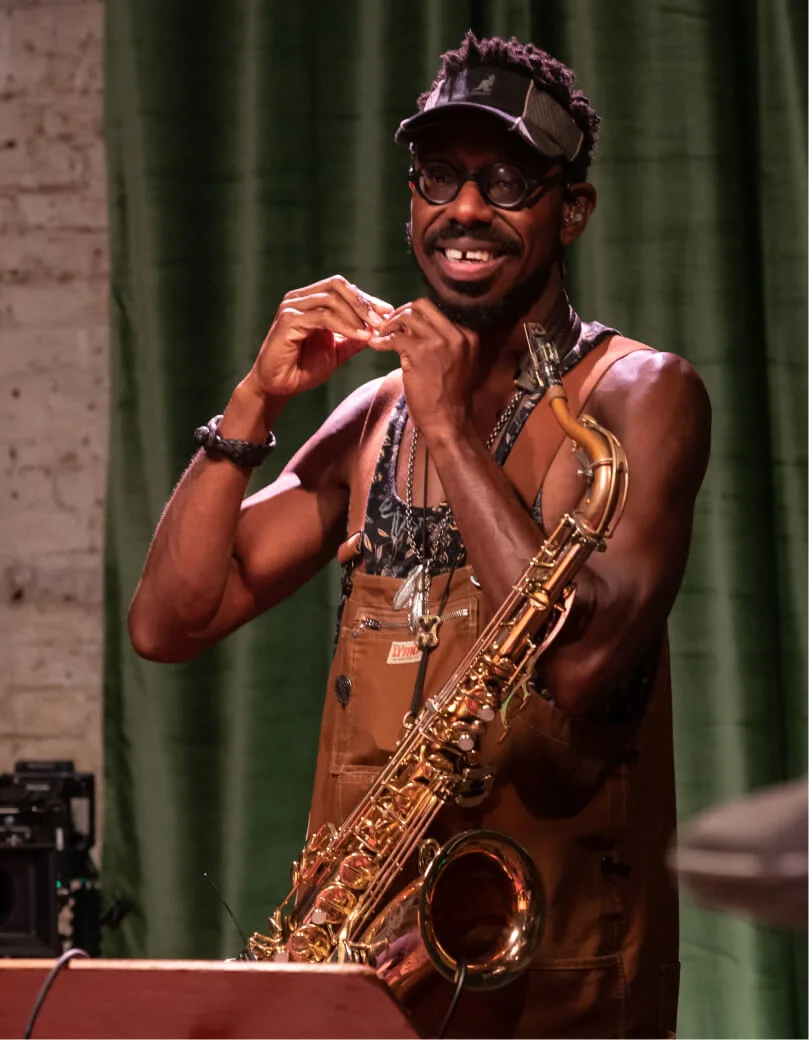
The whole structure of the industry is to industrialize delivering music as a commodity, but people like to think of music as something you would play for your friends in a room.
For Hutchings, watching back, it’s a recording that encapsulates “the energy of that reencounter,” he says. “There is always going to be something special about coming back to musicians you’ve had such a history with, rekindling the flame.”
It’s a rekindling you’ll notice in small moments while watching Sons Of Kemet. Often it’s through small nods of appreciation, as if it’s the first time they are witnessing each other play. At one point, Hutchings’ infectious smile is caught out just beaming at Skinner and Hick playing drums. In another instance, while Hutchings plays a small ceramic flute, you can’t help but nod your head along as Skinner does. For anyone who has seen the band play live, such energy will be familiar. Yet somehow within this studio setting it feels more special—that rare ball of energy Godrich describes is being captured live.
Providing such energy was a purposeful aim of Sons Of Kemet when walking into Godrich’s studio. As Hutchings notes, there is a balance to strike when it comes to a filmed performance—mainly that it actually has to be “a performance.” A filmed session, therefore, has to be one of two things: “It’s got to just be beautiful-looking, or it’s got to have the band actually letting go and performing in that environment,” he says.
This combination creates an environment where people can “go back to an idea of music where it feels like it could be intimate,” he continues. “The whole structure of the industry is to kind of industrialize delivering music as a commodity, but people like to think of music as something you would play for your friends in a room. That’s probably the purest kind of music you can get.”
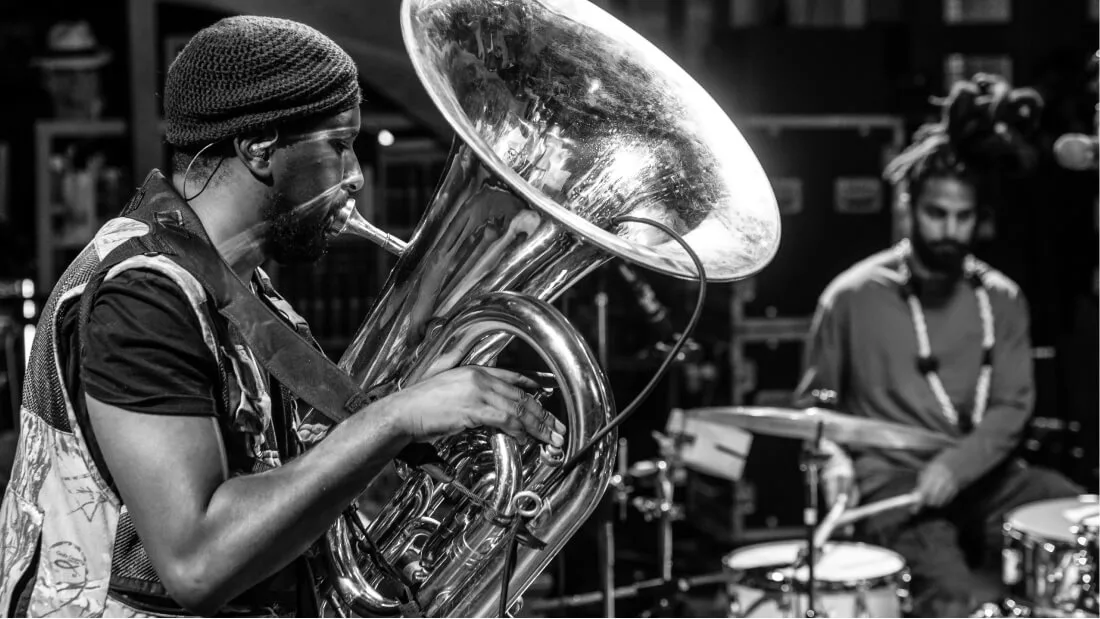
In searching for this purity as a listener himself, Hutchings says he’s “always on the lookout for performances that transcend the vibe limits of the studio.” That’s not to say that the jubilance provided in this particular session is pre-orchestrated—Sons Of Kemet “is not the kind of band that does a lot of takes, or has to labor to get things right,” Hutchings says.
“As soon as we soundcheck and the mics are up and ready, we go in for the performance we’re there to do—and that’s it.”
It’s an approach to recording reciprocated by Godrich’s style of producing too, meaning “what you see on the video is just us performing once the red light went on,” he continues.
There is always going to be something special about coming back to musicians you’ve had such a history with, rekindling the flame.
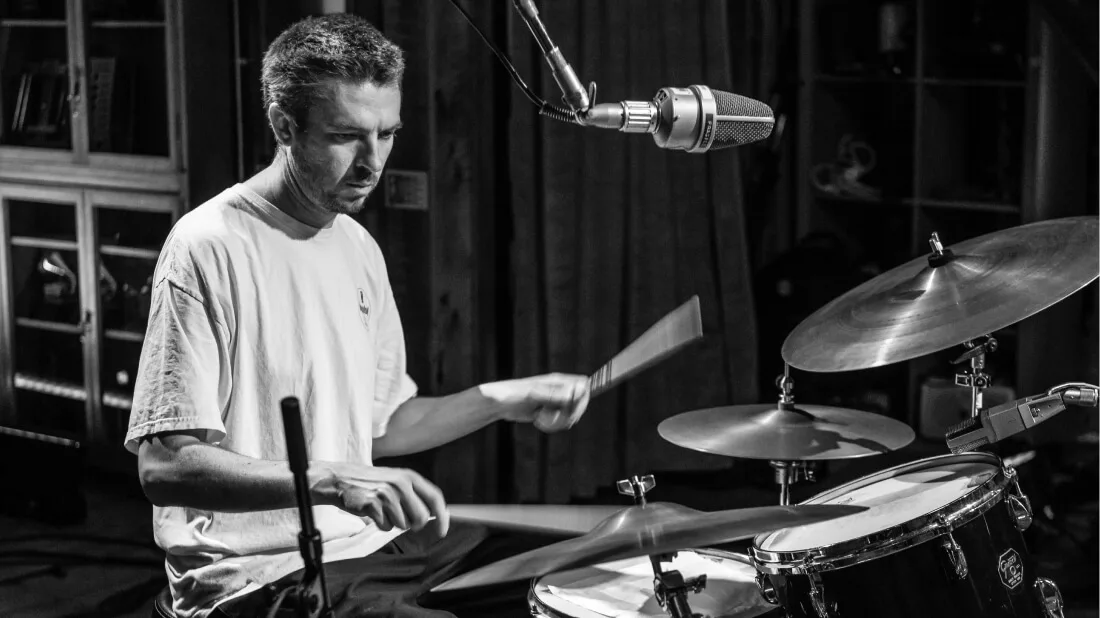
“It was frighteningly easy, you know. That’s the thing with good producers—it’s not often the things that are said.”
Those who listen closely, however, will be able to hear Godrich pipe up once or twice—notably after one take where he can’t help but shout “Yes, mate!” over the mixing desk. But largely, it's his respectful silence that is noticeable.
“Shabaka Hutchings deserves so much,” the producer adds. “[Sons Of Kemet] deserves going under the microscope for the sake of being able to look at it in the future. The essence of them is there and I hope not to have changed the thing that I love about them in the first place.
Want to get early access to exclusive tracks from From The Basement? Sign up for WeTransfer Pro or Premium and we'll do the rest.
